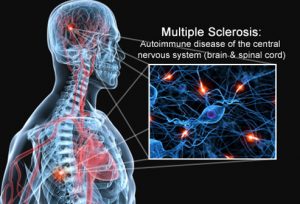MS – Multiple Sclerosis physiotherapy rehabilitation and treatment in London, at home or at our Practices in Belgravia, Westminster SW1, Moorgate Monument EC3 or Clapham SW4 with our Specialised Neuro Physiotherapist
Physiotherapist In London Specialised In MS – Multiple Sclerosis Rehabilitation and treatment

If you are an Axa or Bupa patient, you cannot book online. Please call our office with your authorisation number.
If you cannot find an appointment that suits you, call us or send us a message: we will do our best to find you a slot.
Physiotherapy Rehabilitation and Treatment For MS – Multiple Sclerosis In London, At Home or at The Practice
We offer domiciliary treatment anywhere in London, so you don’t have to worry about transfer if you are already experiencing mobility issues. You can just save your energy for the physiotherapy session. However, we also offer treatment at the Light Centre practices in London, Light Centre Monument between London Bridge and Bank stations EC3, Light Centre Belgravia in Westminster near Victoria station SW1 and Light Centre Clapham SW4 in Clapham Common, as well as at our physiotherapy practice in Clapham South SW4, near Battersea.
Neuro Physiotherapy Treatment In London For Multiple Sclerosis – MS
Physical therapy can play an important role in keeping a patient with multiple sclerosis active, functional and independent for as long as possible. The earlier the physiotherapist is involved in the management of the condition, the bigger the benefits from the treatment.
During the early stages, it is very useful to have an assessment with a specialised neuro-physiotherapist, in order to establish a baseline of your current abilities and compare them in the future, as the condition progresses. The physiotherapist will then create an exercise programme according to your needs, which will help strengthen your muscles and hence improve your balance and coordination.
As the disease progresses, the physiotherapist can help you with maintaining your walking abilities (gait rehabilitation), and use stretches to help you with mobility and prevent muscle spasms and pain. If needed, they can help you learn how to use a walking aid.
Our physiotherapy and osteopathy treatments are covered by most health insurances and are Bupa registered & recognised (BUPA Global and BUPA UK), Axa registered & recognised (AXA International, AXA PPP), Cigna registered & recognised and WPA registered & recognised
For appointment with our physiotherapist at home or in our practices in Moorgate Monument EC3, Belgravia Westminster SW1 or Clapham SW4 :
0207 125 0262 / 0782 455 3765
What Is Multiple Sclerosis or MS? What Are The Symptoms Of Multiple Sclerosis?
Multiple sclerosis, also commonly called MS, is a chronic, inflammatory, degenerative neurological disease that damages the nerves. It affects mostly young adults between the ages of 20 and 50 and it affects women more than men. The symptoms usually appear progressively, although in some cases, the condition can be aggressive and advance quickly.
The initial symptoms are:
- Numbness and tingling in the hands, feet and face
- Vision problems
- Muscle pain
- Weakness and fatigue
Many people with multiple sclerosis may have these symptoms for a few weeks, and then have long periods of time without any symptoms. As the disease progresses, the periods when they have the symptoms are longer and the symptoms become more intense.
At the later stages of the disease the symptoms can develop to:
- Walking problems
- Shakiness
- Muscle spasms
- Loss of balance and coordination
- Bladder and bowel control issues
- Difficulty with speech
If you are an Axa or Bupa patient, you cannot book online. Please call our office with your authorisation number.
If you cannot find an appointment that suits you, call us or send us a message: we will do our best to find you a slot.



